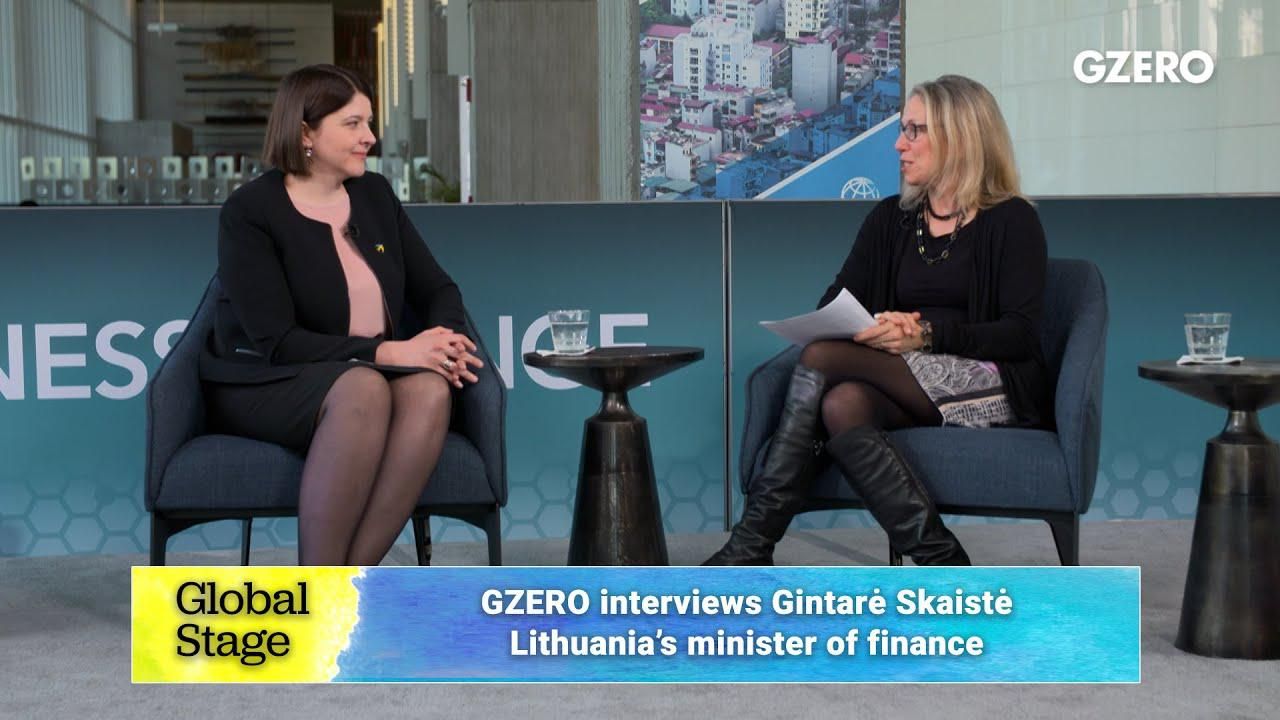Crisis Recovery
Unpacking Lithuania's energy independence strategy

Unpacking Lithuania's Energy Independence Strategy | Gintarė Skaistė | Global Stage | GZERO Media

Over the past two years, Lithuania's economy was hit hard first by COVID, then by the Belarusian migrant crisis, and finally high energy prices late last year.
But now it's proving more resilient than others to the effects of the Russian invasion of Ukraine. Why? Mostly because they prepared for it, Lithuania's Finance Minister Gintarė Skaistė tells Eurasia Group's Shari Friedman in a GlobalStage conversation.
Indeed, the Baltic nation recently grabbed headlines when it became the first EU member state to stop buying Russian oil and natural gas.
But the Lithuanians started the process seven years ago, soon after Russia annexed Crimea.
How did Lithuania do it? Skaistė explains they put a lot of effort into achieving energy independence from Russia, for instance by investing in LNG terminals and connecting to the Nordic countries and Poland.
"Today we have the fruits of … of this prudent policy in the energy sector."
What's more, Skaistė says Lithuania's energy strategy has facilitated the country's transition to renewables and helped lower overall energy consumption.
Watch more of this Global Stage event: Live from Washington, DC: Financing the Future
In this Quick Take, Ian Bremmer addresses the killing of Alex Pretti at a protest in Minneapolis, calling it “a tipping point” in America’s increasingly volatile politics.
Who decides the boundaries for artificial intelligence, and how do governments ensure public trust? Speaking at the 2026 World Economic Forum in Davos, Arancha González Laya, Dean of the Paris School of International Affairs and former Foreign Minister of Spain, emphasized the importance of clear regulations to maintain trust in technology.
Will AI change the balance of power in the world? At the 2026 World Economic Forum in Davos, Ian Bremmer addresses how artificial intelligence could redefine global politics, human behavior, and societal stability.
Ian Bremmer sits down with Finland’s President Alexander Stubb and the IMF’s Kristalina Georgieva on the sidelines of the World Economic Forum to discuss President Trump’s Greenland threats, the state of the global economy, and the future of the transatlantic relationship.